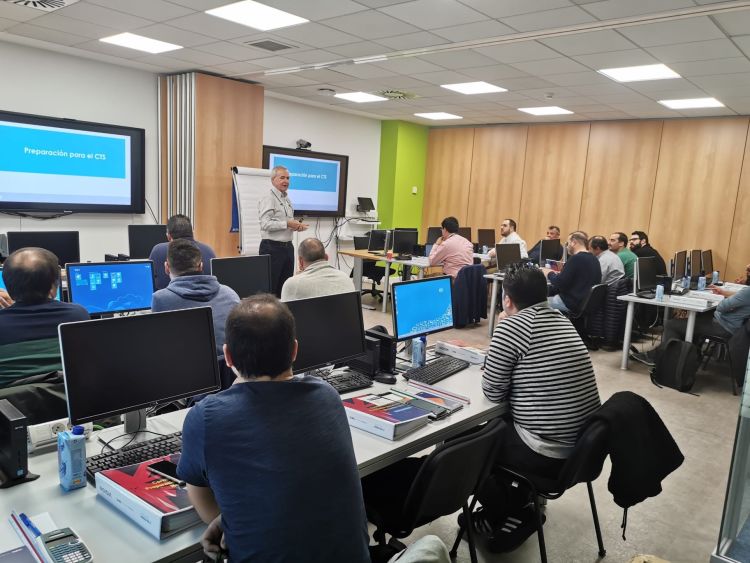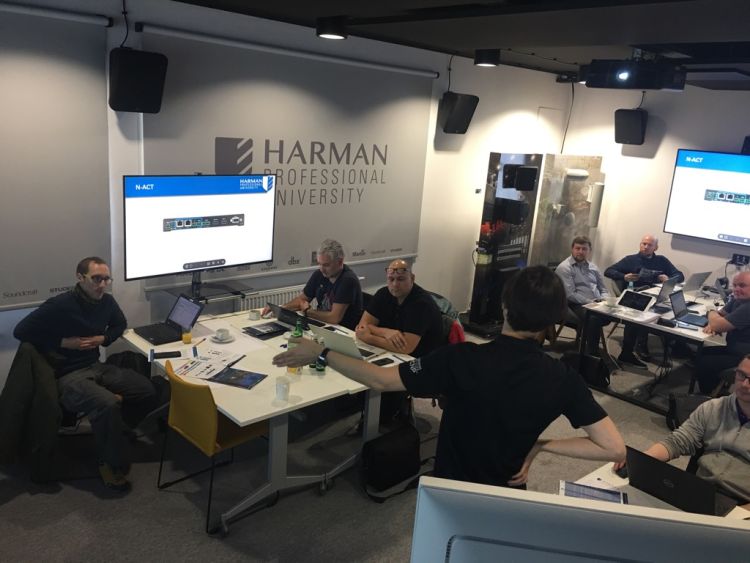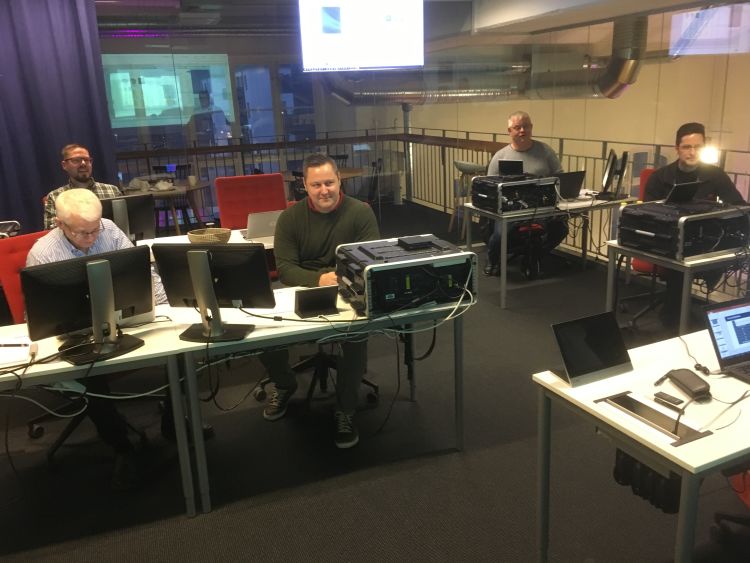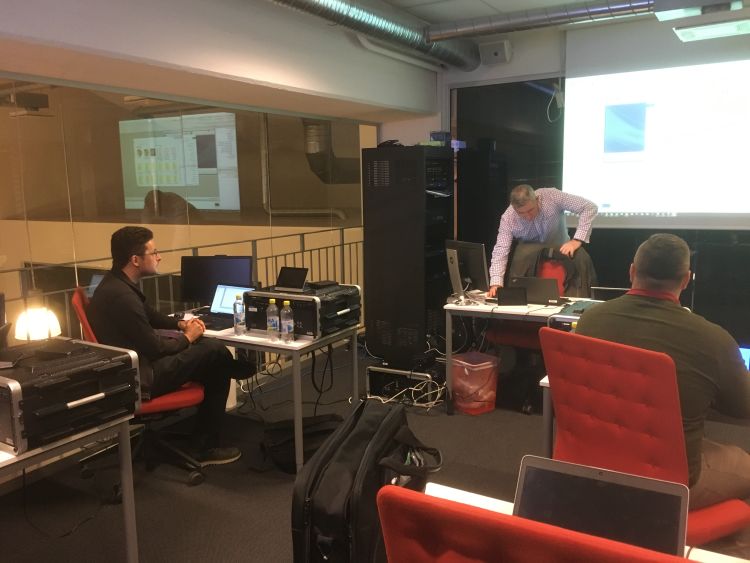Technology is always changing so training is always in need, Paul Milligan looks at what Covid did to training provision and what effect it will have going forward.
Training will always be an important issue in the AV industry, it has been for more than a decade and will continue to be so when everyone reading this has long since retired.
Why? Because working in a technology sector is not like working in construction, concrete doesn’t change that much year to year, technology does, so even if you have a very high level of overall skills, it will need to be topped up every year to cope with new products and new techniques. The Covid-19 pandemic changed everything in 2020, and training was no exception.
Almost overnight in mid-March all physical in-person training was cancelled and hadn’t returned as the year ended. Trade associations, distributors and manufacturers had to completely reassess their training programmes. We spoke to representatives of each to see how they did it, and what it means for training going forward.

We began by asking them to assess the current state of play with regards to the AV industry and training, are we in a good place or is there more work to be done? “When I first came into the industry everybody did whatever they wanted, it was like the Wild West. But manufacturers have got better at delivering training, and customers have got better at asking for certification,” says Graeme Scott, manager of training EMEA, Harman.
In what was a very difficult year training was strong in 2020 says Sarah Joyce, chief global officer of AV trade association AVIXA. “We saw that both in terms of demand of people wanting training and also what’s been provided. If you think about the measurements, we had the same percentage increase of people passing their CTS in 2020 than we did for the previous two, which is phenomenal which when you think for four to five months of the year most of the in-person testing centres were shut.” There are two clear factors for this upturn, the first being that AVIXA made all of its training catalogue and library free of charge from March-June and with workers being forced home during lockdown, people suddenly found they had time on their hands to take part in (online) training. It’s not just AVIXA enjoying this upturn adds Joyce, “Another marker to assess the state of play would be the RU courses (provided by manufacturers) that trebled this year, which shows the value that manufacturers put on training.” During 2020 AVIXA saw more than 100,000 lesson enrolments.
The Covid pandemic saw training enter a state of flux says Matthew Pulsipher, product manager, DVIGear, and we all had to change what we previously knew. “We’re an industry that’s very much focused on in-person training, Covid came and forced us to go online, so there’s been a lot of adaptation going on, and there are positives and negatives to this.”

German AV distributor Prodytel has had its own training academy on-site for eight years and was in the fortunate position of having just completed an investment in an online training platform when Covid struck. Between March and November, online events from the distributor saw more than 2,000 attendees, despite that success the industry should be doing more says Jan Otto, marketing director, Prodytel, “Especially in Germany, for years there have been efforts to establish a standard level of education for the AV industry in Germany, but it hasn’t been established right now.”
If we sould be doing more, what is stopping the industry from completing more training, is it time, money or something else? “Time is a big factor because any training takes time, and to reach the correct level of competence takes more time,” says Scott. “Asking an integrator to sit with you for five days has a big impact on that company. It’s Catch-22, you want your staff to be trained but can you afford to give them that time away from the business?”
One Harman brand Scott manages training for is AMX, originally the programmer course was two five-day training sessions, a significant commitment of anyone’s time. “We looked at what we could condense in the classroom instruction, but also took the training content and moved it to online packages, so people could work through them in their own time. They’re not stuck with us for five days, they could go in, they could do a section, couple of hours a day, and then it makes it a lot easier.” The ability to break up training is a key one if training levels are to be kept high. Time is precious, especially during the working day, so if companies can offer training that can be completed in parts during the evening or at weekends, then it’s better for everyone.

It’s something AVIXA is aware of too says Joyce; “We’ve been developing and changing our curriculum to be able to experience it more in chunks, because that has been something even in pre-Covid that was a desire, but that will continue.”
Individuals behave differently to entire industries when it comes to training adds Richard Sasson, global director of training, Crestron. “Individuals want to move quicker than an overall industry. The biggest challenge we have as an industry is how the technology is evolving so rapidly and keeping up with it as rapidly as it evolves.” In March, Crestron took its entire curriculum and in 10 days flipped from predominantly in-person learning to all virtual instructor-led online training.
If 2020 saw a rise in training, will 2021 see the same, or will the financial reality of Covid hit home with training budgets being cut? “I think we probably didn’t see that impact of training budgets being cut in 2020, but as we continue to come out of Covid I think there’s an inevitability that training budgets will be slimmer in 2021. The onus is then organisations like AVIXA and others to expand the reach and potential of training we can provide," says Joyce.
Offering sector-specific training, so people can add to a new client base, is driving training. “We realised that AV people loved it when they accomplished a certification and became an expert,” says Crestron’s Sasson. “In September we launched our sales associate track, a technician track and designer track (a programmers track already existed). And in doing so, that generated a huge spike in interest, because people no longer were taking a class but learning an entire solution for a career-based education model. It is one thing if I say you need to take a class on how to connect a control processor, it’s another when you can say there’s a class that’s going to help you in your career to understand how to create a connected solution for your customers. And that changes the entire dynamic of what we are teaching.”

This is a trend seen by AVIXA too says Joyce; “We’re starting to see more demand for market-focused education and training, certainly within education as a marketplace. We are seeing demand also within the live events world who have been so impacted by Covid, they have pivoted to see how they can use their skills to support online virtual events, and maybe they didn’t have the previous skill set to have done it.”
Demand for app development training, programming and IT/networking skills has been high and will remain high, which is because of the changing nature of the AV industry but also a desire for staff to keep themselves relevant and attractive to potential employers. “Programming is always popular, as are network skills, people talk about the transition between AV and IT but there’s still a knowledge gap between the traditionalists in AV and networking. So the clamour for networking training, the need for programmer training is always essential,” says Scott.
“For most people in the installation industry, I think they see programming as a step up, the guys who pull the cables and make the racks see the programmer just working with a laptop and they are getting the big bucks for just doing that. And that’s the way they see that progression of things. So that’s why programming is always going to be in more demand.”
Last year saw an enforced move to virtual training, but is it possible to shift all training to an online model, and does the move from in-person to online change its effectiveness? “It depends on the class, the programming classes are pretty effective remotely, why? Because for most of the programming class you are sat in front of your computer anyway,” says Sasson. It’s not the case for every AV skill though he adds, “For the classes teaching you how to be an installation technician, the tactile feel really reinforces how you learn and understand what you’re doing.”
Teaching audio techniques over a laptop can be particularly challenging says Harman’s Scott. “Look at our tour audio training, yes, you can teach people the theory behind the speakers, you can teach people how the software works for configuring the system. But you’ll never be able to replicate standing there and listening to it while you’re playing with the software and see the effect the changes make, that can’t be replaced online.” The issue can just as easily be applied to video too says Sasson, “If I’m teaching video moire patterns and I show it on a screen that’s calibrated, versus what you may have on your laptop, you may get a moire pattern we are discussing or something completely off kilter, it’s a challenge that exists in remote learning for AV.” There are some products that are just too complex to be transferred to a one or two-hour virtual session adds Otto, “I think almost all training can be moved online, but things like Biamp Tesira programming certification would be very hard and would take a lot of work.”
The right move is a mix of the two, in-person and online says DVIGear’s Pulsipher. “As a part of our training process, when onboarding a new customer, we generally recommend for DisplayNet in particular they get certification from the SDVoE Academy, which is online and takes a couple of hours, to give them background knowledge. So when we have the in-person training we can spend more of that time on programming a system or a live demonstration of an advanced videowall.”
The clear need for a mix of online and in-person training means that when Covid has gone, the likely outcome will be a mix, probably akin to Pulsipher’s idea above, you will do the prep online, in chunks and in your own time when it suits you, which will then allow you to attend a short in-person class, giving you more time to spend at your job without potentially losing income.